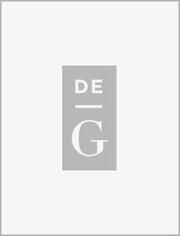Inverse Utopia
304 Seiten, 125 s/w Illustr., 136 farbige Illustr., 125 b/w and 136 col. ill.
Lieferzeit: 5 Werktage(inkl . Versand)
Inverse Utopia looks at urbanism from the perspective of modernism and postmodernism, as well as at how commercialization has transformed the modern city. In his earlier book Ladders (1997), the author described the emergence of the cul-de-sac as a typical manifestation of this trend. In this new book, Inverse Utopia, Pope argues for the development of architectural and urban forms that respond to contemporary ecological and social challenges. The title refers to a statement by the philosopher Günther Anders: whereas utopians are unable to make the things they imagine, others are unable to imagine the things they make. This book is a stand-alone volume but may be read as a sequel to Ladders. - Collection of essays and profiles of design projects The urban design project of modernism and postmodernism Connections between architectural morphology and the consumer economy
Albert Pope, Rice University, Houston, Texas. Albert Pope has written and lectured extensively on the broad implications of postwar urban development. His current research addresses the urban implications of climate change, and he is actively working on the formulation of new models of density in light of the extraordinary demands soon to be placed on the urban environment. His design work has received numerous national and regional awards including from the American Institute of Architects and a design citation from Progressive Architecture. He is the recipient of numerous grants from a wide variety of funding agencies, including the National Endowment for the Arts, National Science Foundation, and the Shell Center for Sustainability. He continues to teach, write, and lecture on the necessity of articulating a contemporary urban project.
| Autor | Pope, Albert |
|---|---|
| Verlag | Birkhäuser |
| ISBN | 9783035627008 |
| ISBN/EAN | 9783035627008 |
| Lieferzeit | 5 Werktage(inkl . Versand) |
| Erscheinungsdatum | 29.09.2023 |
| Lieferbarkeitsdatum | 17.06.2024 |
| Einband | Gebunden |
| Format | 2.8 x 24 x 19 |
| Seitenzahl | 304 S., 125 s/w Illustr., 136 farbige Illustr., 125 b/w and 136 col. ill. |
| Gewicht | 913 |
Weitere Informationen
| Verlag | Birkhäuser |
|---|---|
| ISBN | 9783035627008 |
| Erscheinungsdatum | 29.09.2023 |
| Einband | Gebunden |
| Format | 2.8 x 24 x 19 |
| Gewicht | 913 |
Inverse Utopia looks at urbanism from the perspective of modernism and postmodernism, as well as at how commercialization has transformed the modern city. In his earlier book Ladders (1997), the author described the emergence of the cul-de-sac as a typical manifestation of this trend. In this new book, Inverse Utopia, Pope argues for the development of architectural and urban forms that respond to contemporary ecological and social challenges. The title refers to a statement by the philosopher Günther Anders: whereas utopians are unable to make the things they imagine, others are unable to imagine the things they make. This book is a stand-alone volume but may be read as a sequel to Ladders. - Collection of essays and profiles of design projects The urban design project of modernism and postmodernism Connections between architectural morphology and the consumer economy
Albert Pope, Rice University, Houston, Texas. Albert Pope has written and lectured extensively on the broad implications of postwar urban development. His current research addresses the urban implications of climate change, and he is actively working on the formulation of new models of density in light of the extraordinary demands soon to be placed on the urban environment. His design work has received numerous national and regional awards including from the American Institute of Architects and a design citation from Progressive Architecture. He is the recipient of numerous grants from a wide variety of funding agencies, including the National Endowment for the Arts, National Science Foundation, and the Shell Center for Sustainability. He continues to teach, write, and lecture on the necessity of articulating a contemporary urban project.
Kategorie

